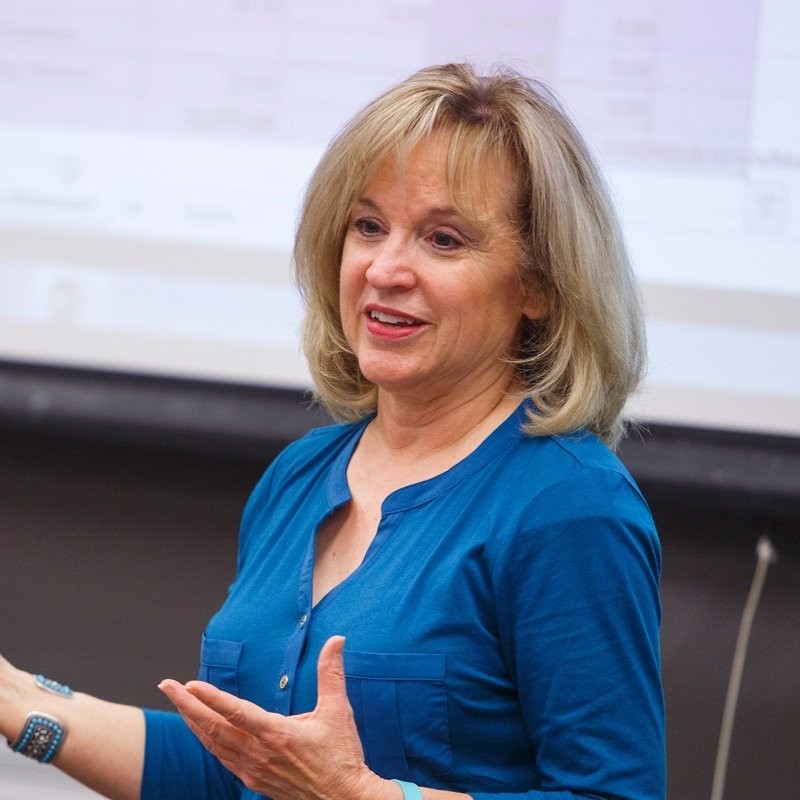In a recent report by the American Institute of Certified Public Accountants, more than 83 percent of CPA forensic accounting professionals said that they were clearly seeing a greater demand for services and they will be increasing their hiring over the next five years. PayScale predicts the 10-year job growth for forensic accountants to increase by over 15 percent and labelled the job as one of the top 25 careers to enter.
DePaul University's Master of Accountancy (MACC) degree prepares students for the forensic accounting and internal auditing roles that are in high demand by employers. The program, which was rebooted three years ago by Associate Professor of Accountancy Cindy Durtschi and a small group of faculty and staff members from DePaul's highly respected School of Accountancy and Management Information Systems, is designed to resonate with students and provide real-world skills that employers seek.

"We developed a master's program that is very unique," says program director Durtschi. "Most master in accountancy programs act like a fifth year to make students eligible for the CPA exam. Our program prepares students to succeed in an accounting career by teaching advanced skills that are high in demand, such as internal audit, forensic accounting and accounting information systems."
The DePaul MACC, which is intended for students with a prior degree in accounting, also fulfills the extra hours needed to sit for the CPA exam. But what makes this program unique is that students gain advanced, practical skills for workplace application through case-based learning and working with audit systems used by accounting professionals.
DePaul MACC Students Gain Skills for Success
Andrew Howard, a graduate student in the MACC program, was initially interested in the degree to continue his education. "I wanted to be able to sit for the CPA exam, but the MACC program is providing me with a lot more, including the right tools and knowledge I need to become successful in my career."
Students also gain speaking, reading and writing skills, as well as the ability to make assumptions based on data and to defend them. Upon completing the program, they will have a better idea of what to look to detect fraud and will know how to distinguish between an error and fraud.
"These skills are in demand by employers," continues Durtschi. "They want that something extra that will set the students apart from their competition. Where we set ourselves apart is a curriculum that makes our students better accountants by having real-world practice in the classroom setting."
The program's core competencies (internal audit, forensic accounting and accounting information systems) are based on insights from top-ranking members of the auditing and accounting profession. The curriculum is designed to give an introduction to each of these competencies, followed by real-world applications and a final capstone project that is a complete fraud investigation.
In the forensic accounting courses, students learn concepts, procedures and skills and then apply them to mock trials based on true-life fraud cases. Like expert witnesses in real trials, the students participating in the mock trials present findings under direct and cross examinations. They also learn how to investigate fraud, interview suspects, complete a net worth analysis, uncover deception and create expert witness reports.
For internal auditing, students learn the internal audit function, internal controls and corporate governance. They get hands-on experience with audit programs, such as CCH TeamMate software, which is used in many top firms. In the accounting information systems classes, students work on data mining and data analytics with programs such as Stata and ACL. Students also learn about conducting information technology audits.
MACC Program Popularity Grows
In the last three years, the program's enrollment has quadrupled in size and continues to grow as a result of student interest and outreach efforts, says Brian Maj, the program coordinator.
The program is offered in both a traditional classroom and online format, with the same high quality present in both formats.
Durtschi notes that program faculty and staff will continue to invest and reassess the degree going forward to ensure that the program continues to produce students with the skills needed for today's job market.
"We want our students to be able to use everything that they have learned on the first day of the job," says Durtschi. "Our goal is to make our students the employers' dream candidates." (Read a related story on DePaul MACC's high ranking in employer survey)
Learn more about: